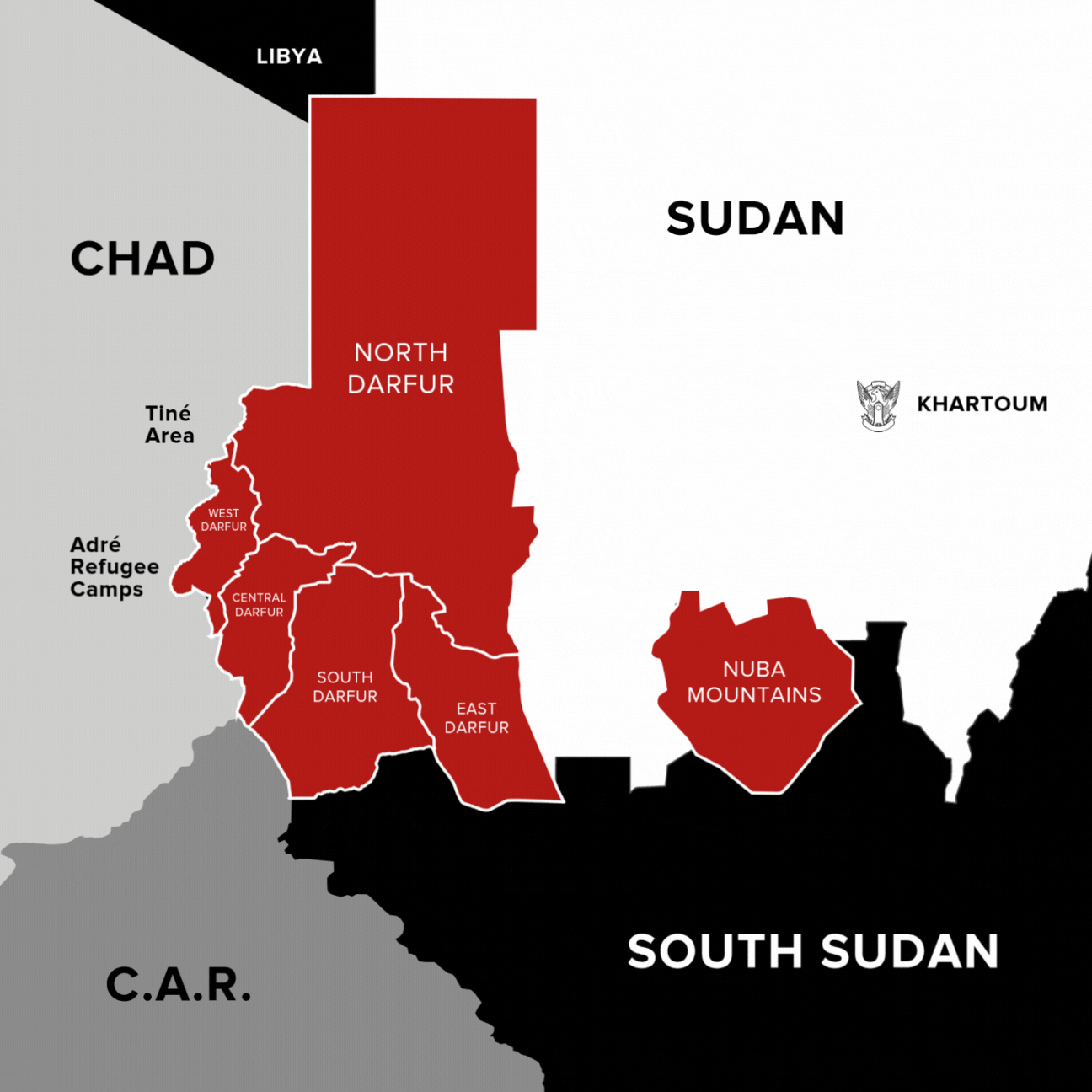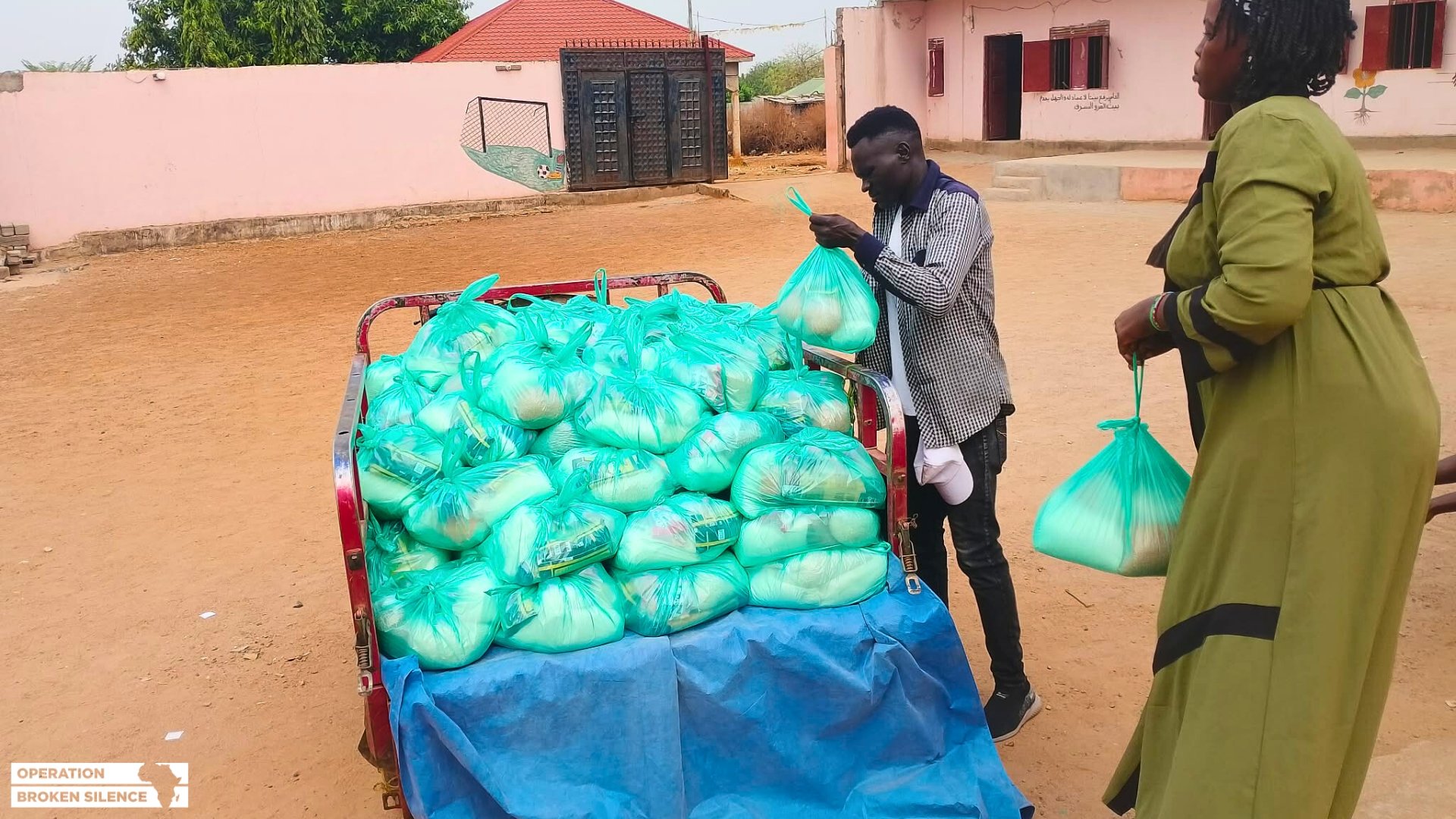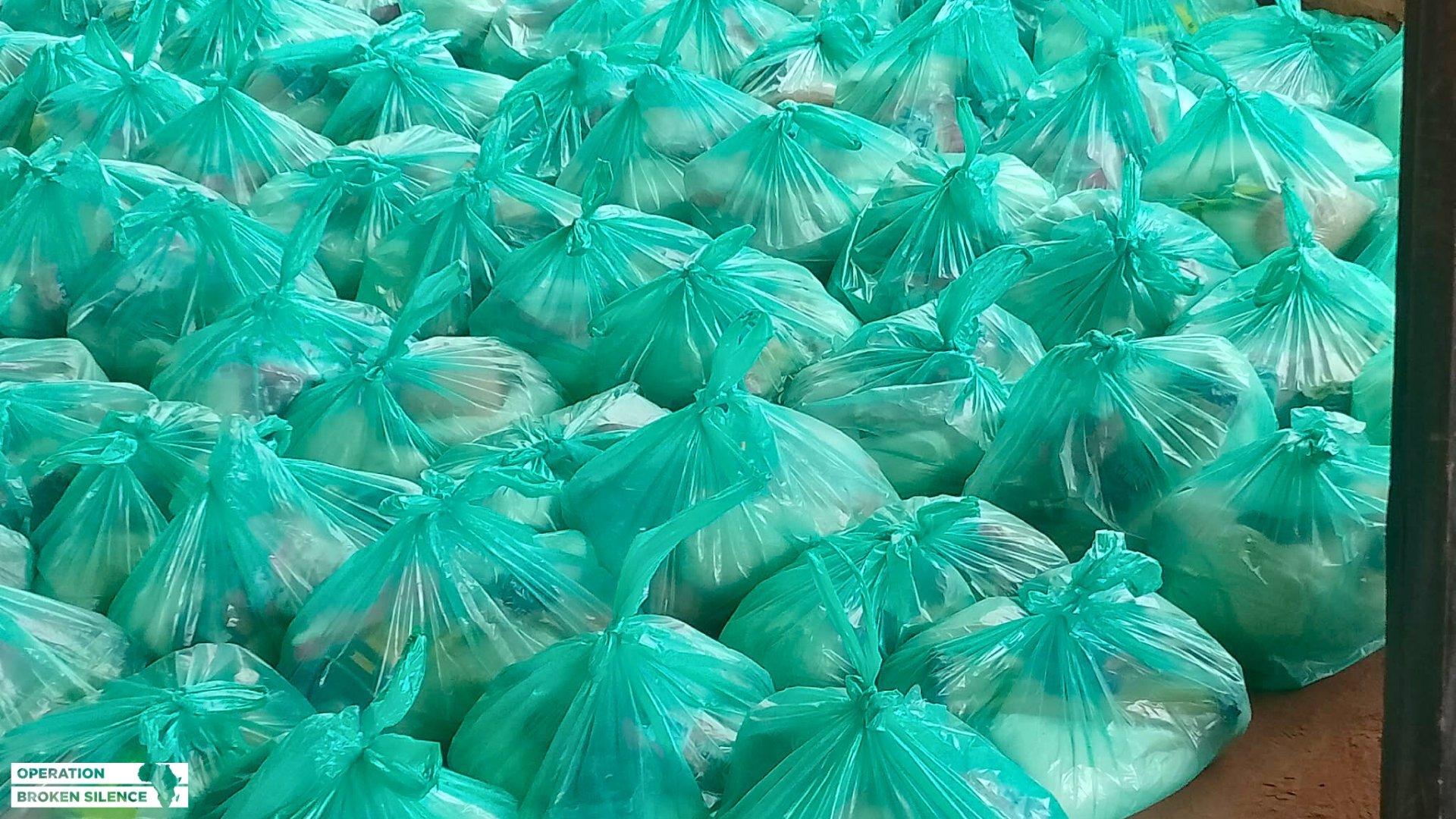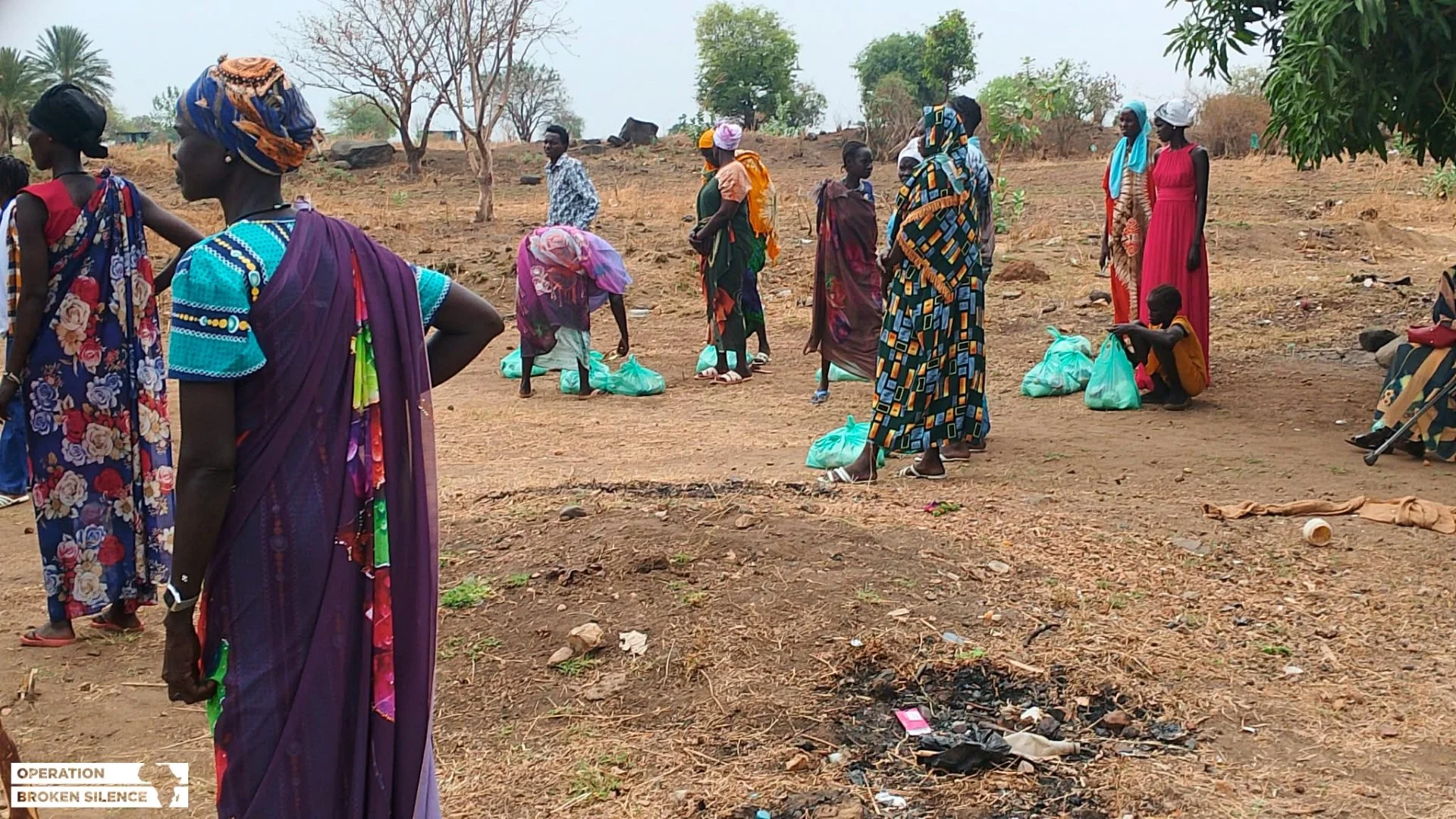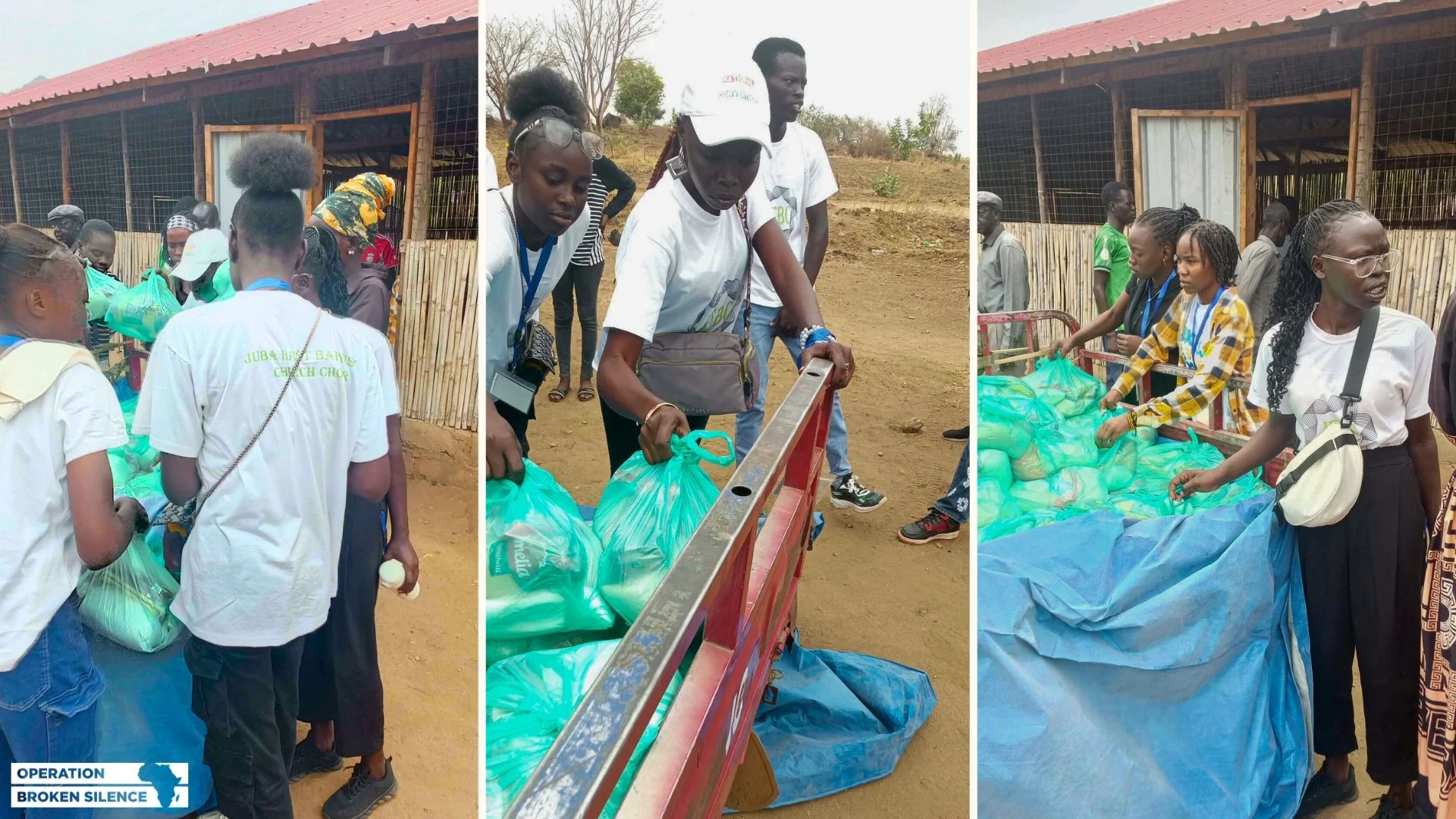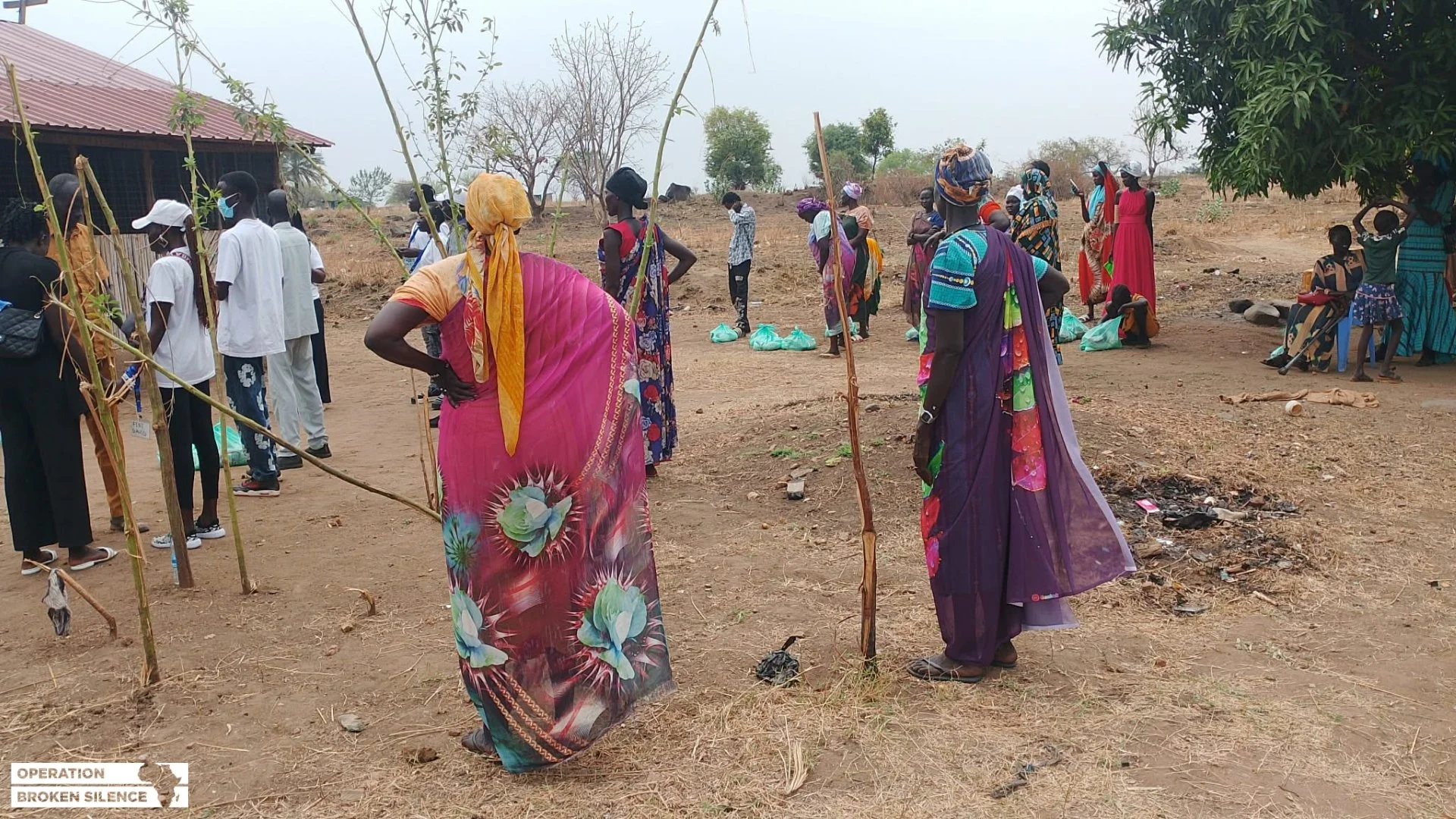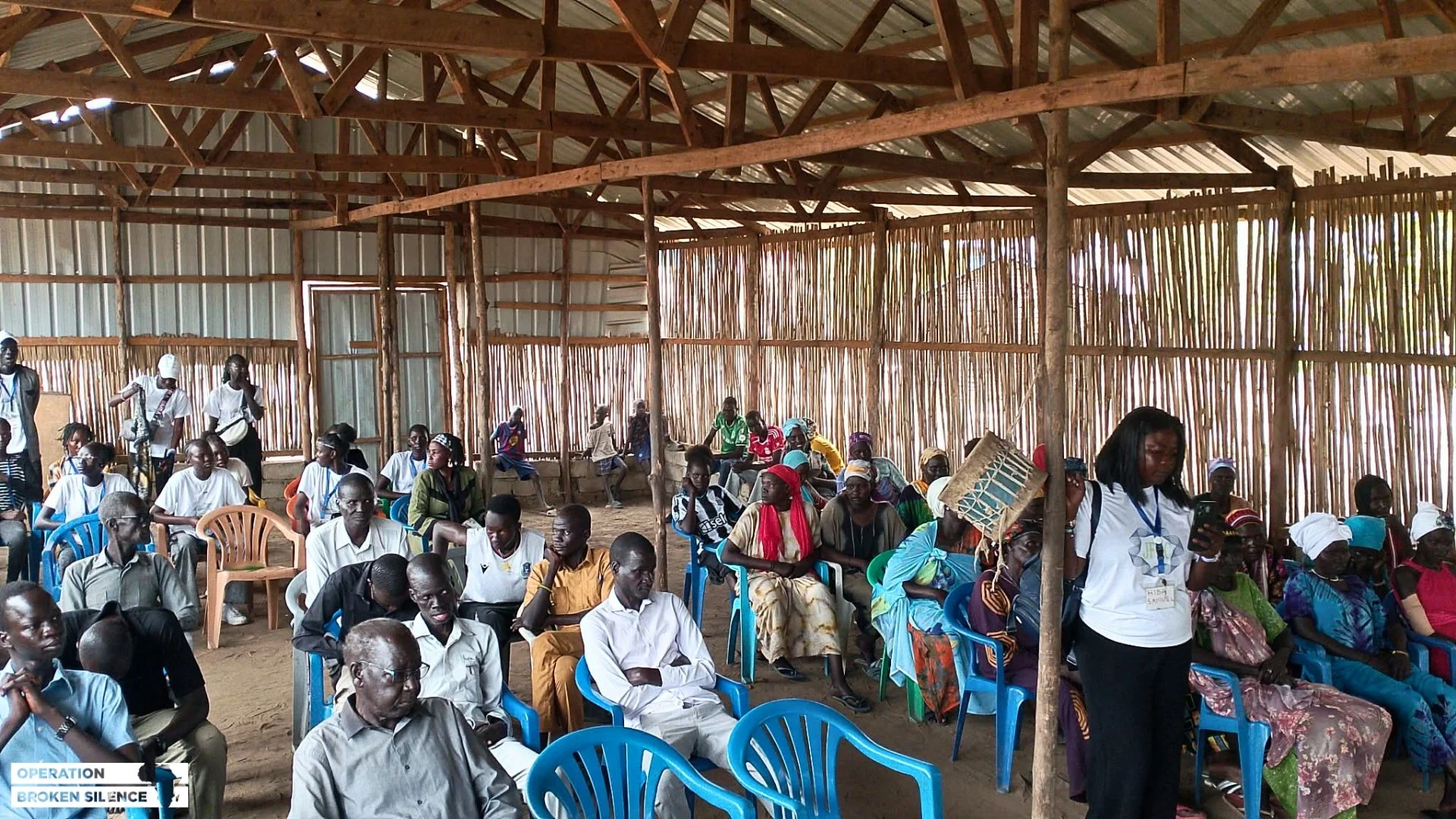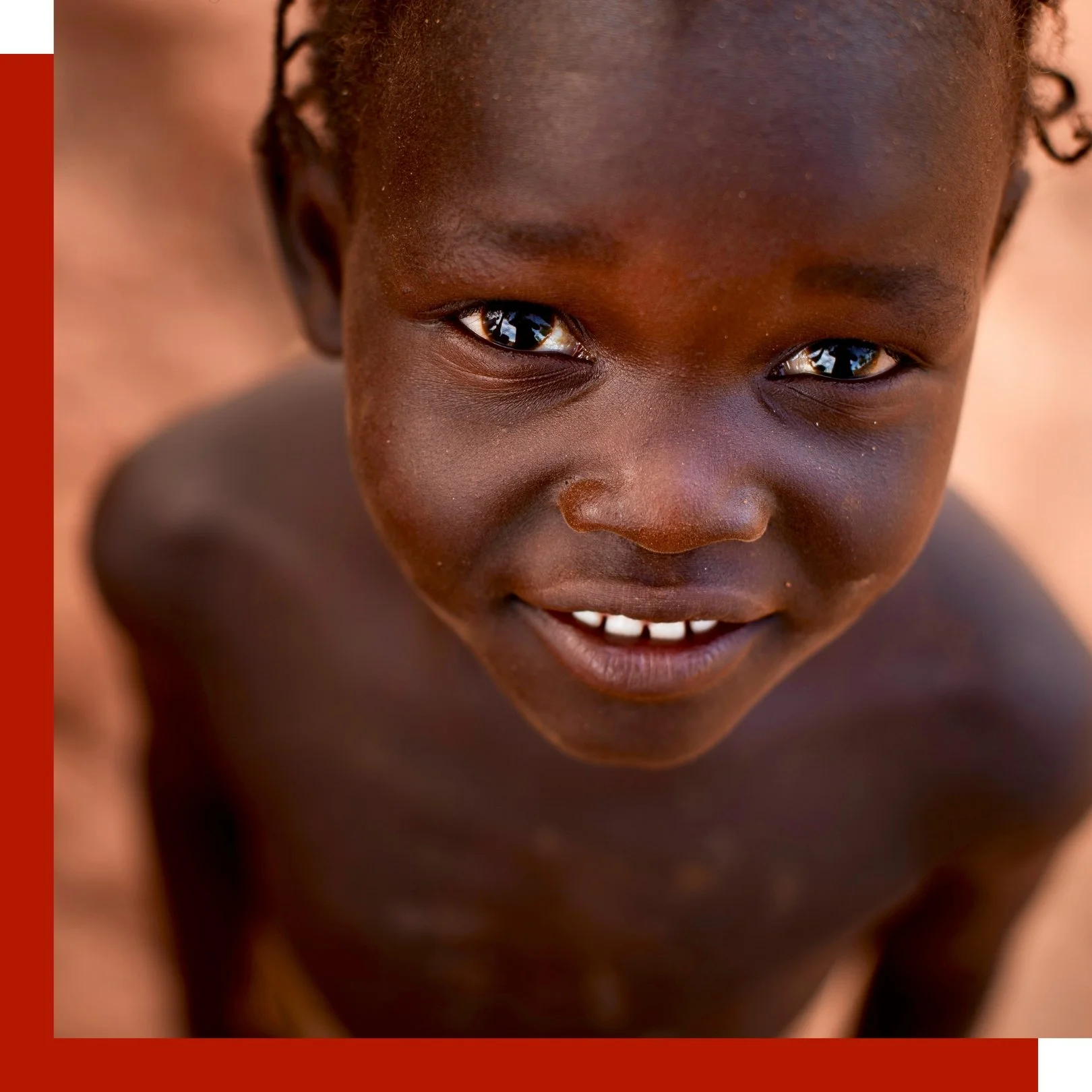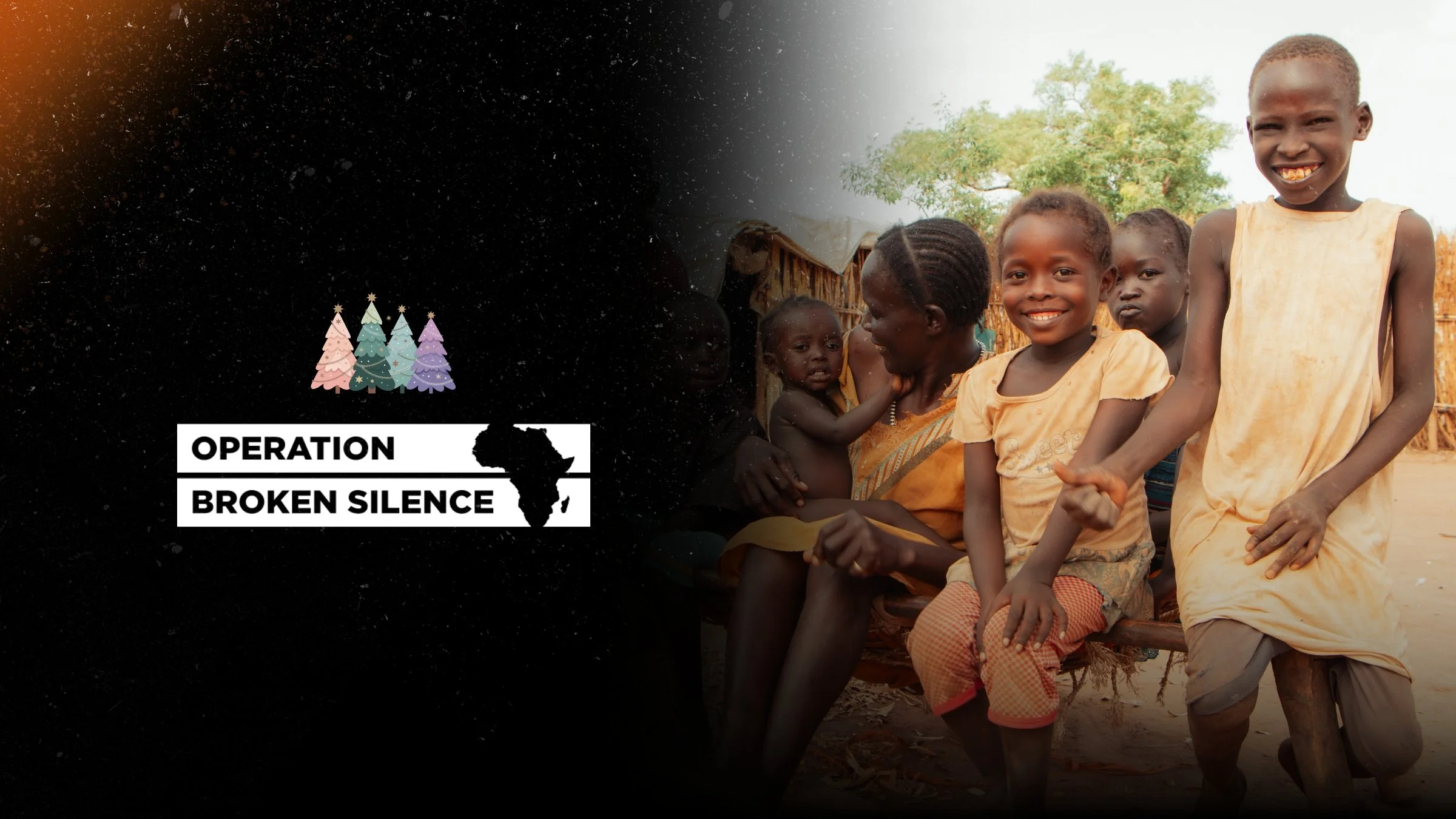News & Updates
Check out the latest from Sudan and our movement
Sudan Crisis Guide - What You Need To Know
Trying to make sense of the war in Sudan? We’ll get you up to speed in just a few minutes.
This guide breaks down what’s happening in Sudan and why it matters.We update it regularly so you can stay informed. The latest update was on March 1, 2026.
Discover ways to help and sign up for updates at the bottom of this page.
The War In Sudan
Sudan is a beautiful country with a rich history in northeast Africa, just south of Egypt along the Red Sea. With over 50 million people and deep diversity, Sudan sits at the crossroads of Sub-Saharan Africa and the Middle East. It’s also the third-largest country on the continent.
A brutal war broke out in Khartoum on April 15, 2023 between:
Sudan Armed Forces (SAF): The country’s official military, including the army, air force, and navy.
Rapid Support Forces (RSF): A paramilitary group formed by a previous dictatorship.
Both sides failed to eliminate each other’s leadership and violence spiraled into a nationwide crisis. Police units, intelligence services, local militias, and some rebel groups from past conflicts have taken sides. The RSF is also recruiting foreign mercenaries from across the Sahel and receiving weaponry from the United Arab Emirates.
Why Are Sudan’s Warring Factions Fighting?
The military and RSF were once allies. That began to change in October 2021 after they overthrow a civilian-led reform government. Tensions rose rapidly between both sides after the coup. RSF commander Mohamed “Hemeti” Dagalo sees himself as Sudan’s next dictator, while SAF generals believe they are the rightful rulers. It’s important to note that many Sudanese citizens want neither in charge. A majority want a democratic, civilian government. There are also deep ethnic divisions driving the violence:
SAF is led mostly by elite Nile Valley Arab officers, some of Sudan’s most privileged groups. While SAF is ethnically mixed at the ground level, Arab supremacy and racism persist in its ranks. Army units have carried out ethnically targeted attacks on civilians.
RSF is dominated by Arab tribes from Darfur. Many commanders and fighters hold a violent and racist ideology that calls for the ethnic cleansing of Darfur’s African communities and subjugation of all other Sudanese Arabs.
This map shows approximate areas of control in Sudan:
Pink: Sudan Armed Forces and Joint Forces allies
Green: Rapid Support Forces and militia allies
Purple: SLM, a Darfuri rebel group from previous wars that is neutral in the conflict
Yellow: SPLM-N, indigenous rebel group in the Nuba Mountains from previous wars
Orange: RSF and SPLM-N have a fragile alliance with troops that overlap in some areas.
In mid-2025, SAF launched major offensives into central and south-central Sudan, recapturing the capital city of Khartoum and expanding their control to El-Obied. The RSF has since ground the army’s advance to a halt in North Kordofan, captured the last SAF stronghold in West Kordofan, and has pushed into limited parts of South Kordofan.
Meanwhile, a SAF garrison and their local allies have been driven out of El Fasher in North Darfur after a brutal RSF siege. The RSF has since committed a genocide in the city, with low estimates suggesting at least 30,000 civilians have been massacred.
Map: Click or tap to expand. L.r. stands for “local resistance” and these areas are controlled by neither the army nor RSF. Pins mark locations of the most recent heaviest fighting. (source)
SAF’s long supply lines and ongoing fuel shortages has weakened the army’s ability to continue advancing, while the RSF is now operating closer to their main bases with tighter supply lines. Neither side is capable of securing an outright victory. Meanwhile, it’s the Sudanese people —trapped between bombs, drone strikes, food blockades, and targeted brutality— who continue to suffer most.
Sudan’s Humanitarian Crisis: The World’s Largest Emergency
It’s barely in the news, but Sudan is collapsing before the world’s eyes. Khartoum’s neighborhoods lie in ruins. In the oppressed western Darfur region, entire communities have been annihilated by the RSF. Villages are burning, crops are rotting in the fields, and families are fleeing with nothing but the clothes on their backs.
Maps: The latest famine tracking and projections from The Integrated Food Security Phase Classification. (source)
This armed conflict is just as much a war on the Sudanese people as it is between rival generals.The RSF is targetingethnic African minorities for extermination and SAF is blocking aid access to large swaths of the country. War crimes are being committed en masse by both sides. The human toll is staggering:
No one knows the death toll, but 260,000+ people have likely been killed by violence, starvation, and disease. This is a moderate estimate based on the very little data that is available and may be a severe undercount.
24.6 million Sudanese need humanitarian aid, while an estimated 5 million people are living in emergency or famine conditions. Another 20 million need healthcare assistance.
Over 9.3 million people have fled their homes, with millions more having left Sudan as refugees.
More than 65% of the country’s main hospitals are closed or destroyed, with many of the ones still functioning at risk of closure from shortages of medical staff, supplies, safe water, and electricity. Disease outbreaks are spreading quickly, too.
55% of schools are closed, leaving roughly 13 million children with no classroom to attend.
What Are World Leaders Doing to End the War in Sudan?
World leaders have largely turned a blind eye as Sudan burns. A smattering of diplomatic efforts have failed to bring about a lasting ceasefire. International aid was only 36% funded for all of 2025, leaving millions of Sudanese facing hunger and disease. Even in refugee camps outside of Sudan, where aid is much easier to deliver, hunger and preventable illness is rampant due to this lack of attention.
The chaos the Trump Administration has inflicted on USAID —one of the largest providers of lifesaving food relief in Sudan— has resulted in the closure of over 60% of Sudanese-run emergency food kitchens, threatening to push more areas of the country into full-blown famine. Meanwhile, the United Arab Emirates is fueling the violence and stretching out the war by supplying weapons, mercenaries, and resources to the RSF.
Despite these challenges, ordinary Sudanese are still finding ways to help each other. The international community can and should be doing far more to support Sudanese-led initiatives and prevent a total collapse into failed statehood.
How You Can Help
Operation Broken Silence is dedicated to Sudanese communities, cultivating resilience and driving meaningful change through crowdfunded programs. In February, our supporters gave $29,550 to Sudanese heroes, which is being used to deliver emergency food aid, medications, and school supplies and to provide counseling services. Here’s how you can join us.
Our global event turns everyday runs, bike rides, and walks into lifesaving support. Every dollar you raise helps fund Sudanese heroes who are providing emergency aid, healthcare, and education to their people. We also have an option where you can skip the exercise and just fundraise. And the best part? Donations to your fundraising page will be matched!
Can’t fundraise right now? You can help by making a one-time donation or getting up a small monthly gift.
Make checks payable to Operation Broken Silence and mail to PO Box 770900 Memphis, TN 38177. You can also donate stock or crypto. We are a 501(c)(3) nonprofit organization. Donations are tax-deductible within the guidelines of U.S. law.
Share This Guide & Get Our Emails
Copy/paste one of these short messages to your feeds:
How is this not the biggest story in the world right now? Sudan is collapsing and almost no one is talking about it. Check out this 🔗 to learn what’s happening and how to help. https://operationbrokensilence.org/blog/sudan-crisis-guide
The world’s largest humanitarian crisis is happening right now in Sudan. It’s not making headlines—but it should be. This helpful guide breaks it down. https://operationbrokensilence.org/blog/sudan-crisis-guide
Sudan is facing the worst humanitarian emergency on the planet. Mass hunger. War crimes. Millions displaced. The world must pay attention. https://operationbrokensilence.org/blog/sudan-crisis-guide
Operation Broken Silence is dedicated to Sudanese communities, cultivating resilience and driving meaningful change through crowdfunded programs. Join us. https://operationbrokensilence.org/blog/sudan-crisis-guide
Adré Children’s Feeding Program and Clinic Update - January 2026
As of this month, the For You Initiative Clinic has completed its third year. Our overall performance evaluation for 2025 was very successful, despite the influx of refugees from Darfur.
Program Background
When war erupted in Sudan in April 2023, Darfur quickly became the epicenter of some of the conflict’s worst atrocities. What began as a power struggle between Sudan’s military and the paramilitary Rapid Support Forces (RSF) spiraled into a brutal, targeted campaign of violence. The largely Arab RSF launched a hate-driven assault on Darfur’s historic ethnic African communities, including the Zaghawa, Fur, and Masalit people groups.
Map by Operation Broken Silence
Parts of Darfur are now in famine. Refugees crossing the border into Adré, with nothing but the clothes on their backs and thousand-yard stares, tell stories of mass killings and starvation. Darfur has descended into ethnic cleansing, widespread rape, and total lawlessness under RSF occupation. Markets, farms, banks, and aid warehouses have been looted or destroyed.
In response, Operation Broken Silence is helping to support local heroes as they deliver emergency food and medical care to some of the most vulnerable refugee communities on the Sudan/Chad border. We’re supporting trusted Sudanese community leaders in two key areas:
The Adré refugee camps
The Tiné area
Below are important updates from the For You Children’s Feeding Center and Healthcare Clinic in Adré—both of which are refugee-led and privately funded by people like you.
January Overview
Eastern Chad has become a major commercial hub due to cross-border trade between western Sudan and Chad. Most all of western Sudan is under Rapid Support Forces (RSF) control and is administratively cut off from the rest of the country. This situation has negatively impacted refugees, as living and healthcare costs have sharply increased.
Most refugees now depend on NGO clinics and hospitals, which themselves struggle to meet growing medical needs. Increasingly, people resort to traditional medicine, causing many to arrive at clinics in critical condition, which in turn elevates treatment costs. Malnutrition cases persist despite regular food distributions, since the rations remain insufficient and lack diversity.
On December 30th, the staff of the For You Initiative, alongside official representatives, beneficiaries from refugee and host communities, and refugee leaders, celebrated the third anniversary of the initiative’s founding. During the event, participants praised the tremendous work carried out by the initiative —especially in healthcare and child feeding— and emphasized its crucial humanitarian role. They called for the continuation of the project, noting that its benefits have clearly reached most refugees and host community members, either directly or indirectly.
During the celebration, attendees enthusiastically contributed voluntary donations amounting to $250, which were allocated for a recreational day for the volunteers and staff of the initiative.
As of this month, the For You Initiative Clinic has completed its third year. Our overall performance evaluation for 2025 was very successful, despite a number of challenges, most of which arose due to the increasing influx of refugees from various parts of Darfur.
Photos: Life at the Clinic in Adré
Departmental Activities
1. Medical Consultation Room – General Practitioner
Patients received: 1,572
Children: 44%, Women: 36%, Men: 20%
Disease count: 2,855 (average of two illnesses per patient)
Most prevalent diseases: Respiratory illnesses (at unusually high levels), Typhoid (digestive system), Urinary infections, Eye infections, Hepatitis B, Skin diseases (notably chickenpox), Tonsillitis, Sexually transmitted infections
Malaria cases significantly decreased during January.
2. Chronic Diseases Clinic
Patients: 659
Switched record-keeping from notebooks to a card system, improving efficiency.
Patients divided into two groups (A & B), though many struggle to attend scheduled appointments due to travel or distance from Adré.
Ahead of Ramadan, the team plans to provide one-month drug supplies in advance.
New arrivals are still registering, but the clinic’s limited monthly budget cannot cover additional chronic disease medications.
3. Gynecology and Obstetrics Clinic
Patients: 85
Services were interrupted on Mondays due to the departure of Dr. Moawia Ishaq, the Gynecology specialist.
In February, a new specialist joined, restoring regular weekly operations and stability.
4. Emergency & Short-Stay Ward
Patients: 285 (mostly children and women)
Typical cases: respiratory infections, asthma, digestive diseases, minor malaria, and some bleeding cases in women.
The winter period (Dec–Feb) in Chad experienced unusual conditions this year—cold mornings, hot afternoons, and heavy dust—leading to increased respiratory illnesses.
The ward uses 3 nebulizer devices, but lacks an oxygen machine, which is urgently needed.
5. Nursing & Minor Surgery Unit
Patients: 290
Decreased numbers since the rainy season ended, but antibiotic injections have increased, especially for women and children.
Performed routine minor surgeries: wound cleaning, removal of foreign objects, and burn care (notably increasing in camps).
6. Laboratory Department
Patients tested: 1,370
Fewer diagnostic tests due to dominance of respiratory illnesses.
Rise in STIs and urinary infections (mainly among women).
High number of positive typhoid cases—linked to contaminated vegetables and water, common during the winter when produce is cheap.
Confirmed cases of Hepatitis B and tuberculosis were also reported.
7. Health Education & Counseling Unit
Conducted 30 group sessions and 15 individual sessions focusing on: Personal hygiene, Skin diseases, STIs, Tonsillitis & sinus infections, Eye health, Breastfeeding, and Cholesterol and diet
With Ramadan starting mid-February, the unit designed educational programs on fasting and nutrition for chronic patients, in collaboration with religious leaders, emphasizing the importance of avoiding fasting if it poses health risks.
Two new Public Health graduates joined as volunteers in December–January, significantly boosting performance. A new initiative called “For You Initiative Radio” was introduced — pre-recorded educational messages broadcast through speakers in waiting areas during clinic hours, creating an informative yet calm atmosphere.
8. Media & Public Relations Department
Due to poor internet connectivity and the suspension of Starlink services (costing USD 120/month), online updates were interrupted. However, documentation and archiving continued regularly.
The PR team reached out to multiple NGOs exploring partnerships—several expressed interest, but none have yet provided tangible support.
The team also met with the local health authority and visited hospitals to coordinate 2026 plans.
MSF Switzerland confirmed that its budget will only cover operations until March 2026—after which both health and water services in Adré and nearby camps will be in jeopardy.
9. Training Department
Held six workshops on various medical and administrative topics, including report writing.
Sessions were attended by all clinic staff.
Continued to supervise health science students who joined in December and January for field experience.
10. Child Feeding Center
Distributed 875 meals; about 200 children attend daily on school days and up to 275 during holidays.
The decrease from previous months is due to school schedules and relocation of about 70,000 families to camps outside Adré.
The Atshana Center continues operating under extreme financial difficulty, sustained only by sporadic donations from supporters in California.
Photos: Life at the feeding center in Adré
11. Eye Clinic
Launched in January 2026, led by Dr. Mohammed Osama, an ophthalmologist with a private practice in Adré who volunteered his services weekly (Tuesdays). Assisted by Ophthalmic Technician Abdelhafiz Mohammed Hassan.
Treated 137 patients in January (average of 35 per session).
Currently, the field clinic lacks a dedicated ophthalmic examination room. Minor treatments and foreign-body removals are done onsite, while major procedures (e.g., cataract, glaucoma) are referred to Dr. Osama’s private clinic, where patients receive a 15% discount. Our clinic also subsidizes post-surgery medications when possible.
This new unit has increased weekly operational costs by $100–150, but it remains essential given the high prevalence of eye conditions among refugees, particularly the elderly and children. We hope to soon secure our own diagnostic devices, as Dr. Osama currently brings his equipment each week, which is not sustainable long-term.
12. Workforce
The Coordination Team of For You Initiative proudly acknowledges the dedication and resilience of its staff despite financial and logistical challenges and limited incentives, especially when compared to salaries offered by international NGOs in border camps. These young people are an inspiring example of sacrifice and service to their community. Sadly, several qualified staff members have left in search of better livelihoods. For instance, one of our laboratory supervisors resigned and now works as a local minibus driver to support his family. We have welcomed new members, though most are less experienced.
12. Donations and Special Activities
Additionally, meat portions (2.5 kg) were distributed to 100 vulnerable families and elderly refugees, donated by Sudanese expatriates in the U.S. as part of Aqiqah (birth celebrations)—a traditional charitable practice among Muslims.
The majority of the For You Initiative’s funding continues to come from Operation Broken Silence. The clinic staff have reached out to multiple organizations both within and outside Chad for additional support. Members of the diaspora in the United States are working to secure sponsors or partners as well. Some entities have expressed interest but not have supported yet.
13. Garden and Environment
We expanded our clinic garden, focusing on flowers and green spaces that have proven beneficial for the mental well-being of patients, particularly those with psychological difficulties.
In January, we revitalized the garden, adding a traditional-style fountain near the offices and patient waiting area. The Health Education team sometimes conducts counseling sessions by the fountain to create a calming environment that supports psychological healing.
Current conditions in Adré
The situation Sudanese refugees face in eastern Chad is a protracted humanitarian emergency. People fleeing ethnic cleansing and famine face hunger and disease after arriving at one of the 30+ informal border crossings, many having walked for days carrying only what they could, including mothers and children weakened by hunger and trauma. The scale of this crisis is staggering:
The number of Sudanese refugees in eastern Chad has surged to almost 915,000 people.
86% of those registered are women and children, of which 25% are adult women.
Over 235,000 refugees are currently settled in the Adré area, more than five times the town’s original population.
13% have registered refugees specific needs, including people with disabilities, single parents, or those who are at-risk.
Source: UNHCR CHAD | CORE Sudan Emergency Situation (February 2026)
These heroes need your help
We anticipate a further rise in the number of refugees in 2026, given the worsening humanitarian and security situations, continued armed conflict in northern Darfur, and intensified airstrikes along the Sudan–Chad border in December and January, forcing more Sudanese to flee deeper into Chadian territory.
The needs in Adré are urgent and growing every week. Right now, it takes a minimum of $8,500 each month to keep the For You Child Feeding Center & Clinic running at minimal capacity. This covers everything from medical supplies and health awareness to hot meals for vulnerable children to basic medication for patients that couldn’t afford it otherwise.
These programs can expand with even more funding. Thousands are still waiting for care. Countless children go to bed hungry every night. You can help change that. In a place where hope is in short supply, your generosity means more than you can imagine.
Checks can be made payable to Operation Broken Silence with Adré written in the memo line and mailed to PO Box 770900 Memphis, TN 38177-0900. You can also donate stock and cryptocurrency while adding a note specifying your gift is for Adré.
Thank you for taking the time to receive this update. Please support us today.
Shareables
Short statements you can share online and with others. Simply copy and paste.
When war erupted in Sudan in April 2023, Darfur quickly became the epicenter of some of the conflict’s worst atrocities, sparking off a protracted humanitarian emergency for refugees in eastern Chad. https://operationbrokensilence.org/blog/adre-childrens-feeding-program-and-clinic-update-january-2026
Over 235,000 refugees are currently settled in the Adré area. Most are women and children. A small clinic and feeding center are saving lives, but they need your help to keep going. https://operationbrokensilence.org/blog/adre-childrens-feeding-program-and-clinic-update-january-2026
The small clinic in Adré continues saving and changing lives. Each week, the dedicated team works with compassion to deliver lifesaving care to Sudanese refugees, despite limited resources and growing demand. https://operationbrokensilence.org/blog/adre-childrens-feeding-program-and-clinic-update-january-2026
What does hope look like in a refugee camp? It looks like a child receiving her only hot meal of the day. A mother being treated for malaria. A community standing together. Help us keep hope alive. https://operationbrokensilence.org/blog/adre-childrens-feeding-program-and-clinic-update-january-2026
Food relief delivered to refugees near Juba
The war in Sudan is so destructive and widespread that refugees are falling through the cracks. We’re doing our small part to help meet needs on the ground.
The war in Sudan is so destructive and widespread that refugees are falling through the cracks. We’re doing our small part to help meet needs on the ground.
•••••
Persecuted ethnic and religious minorities fleeing the war in Sudan into South Sudan arrive often after having lost everything. Yet even in the refugee camps humanitarian aid can be scarce due to a veil of silence around these problems. With crises raging in the Middle East and Ukraine, as well as political turmoil in the United States, there are few Sudan-minded donors today.
Our partner River Mile Ministries has multiple locations across South Sudan made up of local pastors and other leaders who provide spiritual and physical care to victims of war, including delivering food relief and clothing, training new pastors for refugees communities, building simple facilities for people to gather in, and more. Operation Broken Silence is helping River Nile deliver a small amount of school supplies in Yida Refugee Camp on the Sudan/South Sudan border, as well as emergency food relief to Sudanese refugees in and around Juba.
On February 14, emergency food relief was delivered to 107 refugee families near Juba who are in need. This wouldn’t have been possible without your generosity! You can see a few photos from this delivery above. An additional 600+ people showed up seeking assistance, proving that needs continue to far outweigh available resources.
How You Can Help
Small-scale food relief deliveries may feel like a drop in the bucket, but they are a lifeline to those in need. You can help us fund more work like this by joining Miles For Sudan! Our global event turns everyday runs, bike rides, and walks into lifesaving support.
Every dollar you raise helps fund Sudanese heroes who are providing emergency aid, healthcare, and education to their people. We also have an option where you can skip the exercise and just fundraise. Donations to all fundraising pages are currently being matched!
Checks can be made payable to Operation Broken Silence with River Nile written in the memo line and mailed to PO Box 770900 Memphis, TN 38177-0900. You can also donate stock or crypto. We are a 501(c)(3) nonprofit organization and our EIN is 80-0671198. Donations are tax-deductible within the guidelines of U.S. law.
Shareables
Short statements you can share online and text to others. Simply copy and paste.
The war in Sudan is so destructive and widespread that refugees are falling through the cracks. We’re doing our small part to help meet needs on the ground. https://operationbrokensilence.org/blog/food-relief-juba-february-2026
Even in Sudanese refugee camps humanitarian aid can be scarce due to a veil of silence around the war. With crises raging in the Middle East and Ukraine, as well as political turmoil in the United States, there are few Sudan-minded donors today. https://operationbrokensilence.org/blog/food-relief-juba-february-2026
On February 14, emergency food relief was delivered to 107 refugee families near Juba who are in need. This wouldn’t have been possible without your generosity! Learn more: https://operationbrokensilence.org/blog/food-relief-juba-february-2026
Operation Broken Silence is dedicated to Sudanese communities, cultivating resilience and driving meaningful change through crowdfunded programs. Will you join us? https://operationbrokensilence.org/blog/food-relief-juba-february-2026
Miles For Sudan - FAQ
Learn about the global event that is helping to save and change lives in Sudan.
Our brave Sudanese partners are overwhelmed and in desperate need of more support as war and famine spread. Miles For Sudan is our invitation to you to get off the sidelines and start helping them. This virtual event helps runners, walkers, and cyclists attach their favorite workout to a fundraising goal. You can participate from almost anywhere in the world.
How does Miles For Sudan work?
This event is very simple:
Pick a month to participate.
Select your workout type and fundraising goal.
Get moving and fundraising!
You will get a personal fundraising page that includes a video and information about this crisis. All you have to do is share it online every time you run, walk, or bike with a brief message about how many miles you put in and asking people to donate!
You’ll also unlock perks as you move toward your goal:
All participants who raise $250+ unlock a suite of virtual cooking and cocktail demos.
If you live in the United States and raise at least $500, we will mail you a t-shirt roughly 4 weeks after your fundraiser ends.
Where does the money I raise go?
It’s a three-step process from your fundraising page to lifesaving programs in Sudan:
Donations are made to your fundraising page.
The funds you raise in a given week arrive in our bank account the following Monday.
We gather up donations for an entire month. We send funds raised in bulk to our partners on the first business day of each month.
The total amount we send to our Sudanese partners is reported in our free newsletter each month. If you have a question about the emergency in Sudan or our Sudanese partners, we encourage you to check out these more detailed resources on our website.
I want to do more! What are my options?
Become a team captain! You can select the Create A Team option when registering to get started. Your people will be able to register through your team page, and every time they receive a donation to their own fundraiser, it rolls up into your team’s goal. Here are a few ideas to get you started:
Do a livestream fundraiser during your spin class that participants can share online and ask others to pitch in! This is also a great option for running, yoga, HIT classes, and more.
Work with your school, running or biking club, or house of worship to get a team started.
Host an in-person event such as a 5K run and walk.
Simply start a team and ask friends and family to register.
Please contact us if you hope to do an in-person event or have already registered and need a team page started for you.
Additional Questions
-
Absolutely! This is a global event and you can run, cycle, or walk from wherever you call home. There are a few exceptions as outlined by U.S law.
Your fundraising page automatically accepts 150+ currencies from around the world, which means most people can give in their local currency.
-
That’s entirely up to you, but we recommend aiming for at least $250. You’ll set your fundraising goal when you register.
-
You can use your Apple Watch, Fitbit, or favorite exercise app to track your miles! We also have a printable tracker we’ll email you when you sign up if you prefer that.
Your fundraising page tracks your progress for you by updating in real-time every time a donation is made.
-
Absolutely! If you prefer giving your full goal amount instead of fundraising that is okay. Just go through the registration process and then donate to your own page.
-
Check out our Fundraising Assets if you haven't yet! If you are still struggling after using these tools, please reach out to us at info@operationbrokensilence.org. Our team is here to help!
-
You have no obligation to reach your goal. Every mile you knock out and dollar you raise will still help Sudanese teachers, healthcare professionals, and aid workers.
-
Our years of experience have taught us this is the best way to do things, for three reasons:
It helps our Sudanese partners plan and spend the funds you raise more wisely, since they know how much money they have to work with for a month. They prefer we send funds this way.
It reduces banking fees by 75%, which means our partners get even more of the money we send them. Every penny counts when you're saving and changing lives.
It streamlines our accounting, gifting our staff extra time to focus more on fundraising, educating, and planning.
-
Participants who raise $500+ and live in the United States get a free shirt! Please allow at least 4-6 weeks after your fundraiser ends for delivery. If your shirt hasn’t arived by then, shoot us a quick messge at info@operationbrokensilence.org
-
Unfortunately we are unable to ship outside of the United States at this time.
Still need help? Drop us a quick message here and we’ll get back to you ASAP.
Make your last donation of 2025
Donations are tax-deductible within the guidelines of U.S. law, and your gift can make a real difference.
This year in Sudan has been both challenging and inspiring. While the war has brought unprecedented suffering, we've also witnessed firsthand the incredible resilience, courage, and compassion of our Sudanese partners. Thank you for standing with them this year.
You can get the latest overview of the crisis in Sudan, recent program updates, and discover key deadlines for the 2025 Giving Season below. Operation Broken Silence is a registered 501(c)(3) organization. Our EIN is 80-0671198. Donations are tax-deductible within the guidelines of U.S. law, and your gift can make a real difference.
2025 Giving Deadlines
For your gift to count for the 2025 tax year:
Online Donations - Must be submitted by midnight on December 31.
Checks - Must be dated and postmarked by December 31. Make checks payable to Operation Broken Silence and mail to PO Box 770900 Memphis, TN 38177-0900.
DAFs, Stocks and Mutual funds, and Cryptocurrency - Investment gifts and donor-advised funds take time for brokers and exchanges to execute. We recommend submitting them no later than Monday, December 29 to ensure there is enough time. Please note that gifts of stock, mutual funds, and cryptocurrency are non-refundable.
With your generous support, we can help our Sudanese partners continue saving and change lives for the better. Thank you for being a part of our movement this year. Talk to you soon.
Onward,
Mark C. Hackett
Executive Director
Adré Children’s Feeding Program and Clinic Update - December 2025
Clinic operations continue without interruption, with full availability of medicines and medical supplies, and strong commitment from staff.
Program Background
When war erupted in Sudan in April 2023, Darfur quickly became the epicenter of some of the conflict’s worst atrocities. What began as a power struggle between Sudan’s military and the paramilitary Rapid Support Forces (RSF) spiraled into a brutal, targeted campaign of violence. The largely Arab RSF launched a hate-driven assault on Darfur’s historic ethnic African communities, including the Zaghawa, Fur, and Masalit people groups.
Map by Operation Broken Silence
Parts of Darfur are now in famine. Refugees crossing the border into Adré, with nothing but the clothes on their backs and thousand-yard stares, tell stories of mass killings and starvation. Darfur has descended into ethnic cleansing, widespread rape, and total lawlessness under RSF occupation. Markets, farms, banks, and aid warehouses have been looted or destroyed.
In response, Operation Broken Silence is helping to support local heroes as they deliver emergency food and medical care to some of the most vulnerable refugee communities on the Sudan/Chad border. We’re supporting trusted Sudanese community leaders in two key areas:
The Adré refugee camps
The Tiné area
Below are important updates from the For You Children’s Feeding Center and Healthcare Clinic in Adré—both of which are refugee-led and privately funded by people like you.
November Overview
November marked the transition between rainy season illnesses and winter-related conditions. While malaria cases began to decline, it remained the most prevalent disease. Clinic operations continued without interruption, with full availability of medicines and medical supplies, and strong commitment from staff. Service expansion included additional obstetrics clinics and increased attendance at the chronic diseases unit following the arrival of refugees from El Fasher in North Darfur.
Photos: Life at the Clinic in Adré
Departmental Activities
1. General Consultation (General Practitioner)
1,516 patients (12% increase vs. October).
Children represented 40% of patients.
Disease frequency: 2,855 cases (average of 2 per patient).
Notable cases: 2 Hepatitis B, 1 pulmonary tuberculosis.
Malaria remains dominant but declining; winter-related illnesses rising.
2. Chronic Diseases Clinic
697 patients (8% increase).
Growth linked to new refugee arrivals from El Fasher.
Full provision of medicines, tests, and counseling.
Celebrated World Diabetes Day with patients.
3. Women’s & Obstetrics Clinic
120 patients (50% increase).
Expanded services with Dr. Muawiya Ishaq joining; weekly clinics doubled.
Anticipated further expansion with Dr. Mohamed Omar’s return.
Provided consultations and care for women and pregnant patients.
4. Emergency & Short-Stay Department
346 cases (11.5% decrease).
Malaria remained the top emergency, followed by bleeding and respiratory distress.
Children were the majority of emergency cases.
5. Nursing & Minor Operations Department
306 patients (3% increase).
Services included injections, wound care, and minor procedures.
Supplies sufficient; seasonal decline in skin/wound cases.
6. Laboratory Department
1,309 patients (5% increase).
2,579 tests conducted (15% increase).
Restored funding enabled previously suspended tests.
Most common: malaria, urine, diabetes, blood pressure, typhoid.
7. Guidance & Awareness Department
12 group sessions, 35 individual sessions.
Focused on hygiene, chronic disease awareness, and mental health.
Photos: Breast cancer awareness event
8. Media & Public Relations Department
Weekly reports published consistently.
Expanded photo/video archives.
Collaborated on awareness campaigns, including World Diabetes Day.
Hosted delegation from “ACTED” organization to complete NGO profile.
Engaged West Darfur Emergency Coordination Council to explore funding opportunities for Darfuri refugees in Chad.
9. Training Department
3 medical discussion sessions (lab requests, diabetes testing).
All staff participated.
Added new laboratory trainee.
10. Feeding Center
6,309 meals served to children (11.5% decrease). The slight decline is linked to the closure of a nearby kindergarten.
Staff/patient/companion meals: 1,442 (stable vs. October).
Photos: Life at the feeding center in Adré
11. Workforce
After a shortage of doctors and lab technicians in late September:
A new general practitioner, Dr. Mariam Bashir, joined the clinic.
A malaria technician, Mr. Al-Hafiz Mohamed, joined the laboratory team.
12. Infrastructure & Sustainability
Repaired rain-damaged structures: feeding center façade, fences, patient shelters, benches.
Expanded solar energy capacity to meet clinic demand.
Renewed signage and flowerbeds.
Current conditions in Adré
The situation Sudanese refugees face in eastern Chad is a protracted humanitarian emergency. People fleeing ethnic cleansing and famine face hunger and disease after arriving at one of the 30+ informal border crossings, many having walked for days carrying only what they could, including mothers and children weakened by hunger and trauma. The scale of this crisis is staggering:
The number of Sudanese refugees in eastern Chad has surged to nearly 900,000 people.
87% of those registered are women and children, of which 24% are adult women.
Over 235,000 refugees are currently settled in the Adré area, more than five times the town’s original population.
14% have registered refugees specific needs, including people with disabilities, single parents, or those who are at-risk.
Source: UNHCR CHAD | CORE Sudan Emergency Situation (December 14, 2025)
These heroes need your help
The needs in Adré are urgent and growing every week. Right now, it takes a minimum of $8,500 each month to keep the For You Child Feeding Center & Clinic running at minimal capacity. This covers everything from medical supplies and health awareness to hot meals for vulnerable children to basic medication for patients that couldn’t afford it otherwise.
These programs can expand with even more funding. Thousands are still waiting for care. Countless children go to bed hungry every night. You can help change that. In a place where hope is in short supply, your generosity means more than you can imagine.
Checks can be made payable to Operation Broken Silence with Adré written in the memo line and mailed to PO Box 770900 Memphis, TN 38177-0900. You can also donate stock and cryptocurrency while adding a note specifying your gift is for Adré.
Thank you for taking the time to receive this update. Please support us today.
Shareables
Short statements you can share online and with others. Simply copy and paste.
Share Our Posts: Instagram | Facebook | Threads | Bluesky | Reddit | LinkedIn
When war erupted in Sudan in April 2023, Darfur quickly became the epicenter of some of the conflict’s worst atrocities, sparking off a protracted humanitarian emergency for refugees in eastern Chad. https://operationbrokensilence.org/blog/adre-childrens-feeding-program-and-clinic-update-december-2025
Over 235,000 refugees are currently settled in the Adré area. Most are women and children. A small clinic and feeding center are saving lives, but they need your help to keep going. https://operationbrokensilence.org/blog/adre-childrens-feeding-program-and-clinic-update-december-2025
The small clinic in Adré continues saving and changing lives. Each week, the dedicated team works with compassion to deliver lifesaving care to Sudanese refugees, despite limited resources and growing demand. https://operationbrokensilence.org/blog/adre-childrens-feeding-program-and-clinic-update-december-2025
What does hope look like in a refugee camp? It looks like a child receiving her only hot meal of the day. A mother being treated for malaria. A community standing together. Help us keep hope alive. https://operationbrokensilence.org/blog/adre-childrens-feeding-program-and-clinic-update-december-2025



